Collaborative strategies and new technologies for plastic circularity have proven to be a reality ready to be implemented in the market thanks to PlastiCircle. The results and impacts of this Horizon 2020 project will be showcased in a final forum to be held online on 13 April. The event is organised by ITENE research centre in collaboration with KIMbcn, Proplast and ICLEI, with the support from Ecoembes and PlasticsEurope.
This free forum invites industrial players along the plastic packaging value chain - including the plastic industry, converters, waste managers and recyclers-, as well as public authorities and policymakers, and will offer an overview of PlastiCircle achievements. The project comes to an end in May 2021, after four years of intense and innovative work to rethink the packaging waste cycle and transform it into a circular model, aligned with the European Union strategy.
As coordinator of the project, ITENE will give an introduction about the PlastiCircle approach, followed by European Commission's Project Officer Jiannis Kougoulis, who will explain the European Union circular economy strategy through Horizon 2020 and Horizon Europe programmes and PlastiCircle’s role in it. Then, Circularity Director of PlasticsEurope Patricia Vangheluwe will offer a high impact presentation on the circular economy with plastics.
Partners will show the technologies developed in the project, and Las Naves (Valencia, Spain), Municipality of Alba Iulia (Romania) and Municipality of Utrecht (The Netherlands) will explain how these innovations were implemented through three pilot projects and the results achieved. In addition, KIMbcn and ITENE will present the sustainable business model to promote circularity offered by PlastiCircle.
In the afternoon session, Axion will explain the strategy for the development of new products with post-consumer recycled plastics, while Proplast will offer an overview of the outputs obtained using plastic. These products will be presented as circular economy success stories by the companies Armacell, Derbigum, CRF, Hahn Plastics and Interval.
With this cross-cutting vision, PlastiCircle will demonstrate how the industry can already benefit from these developments to realise the new paradigm of the circular economy.
Click here to see the programme.
Click here to register.
For media queries, please contact:
Priscilla Castro, PLASTICIRCLE Communications Coordinator: priscilla.castro@iclei.org
Fuencis Rausell, Head of ITENE´s Communication Unit: fuencis.rausell@itene.com
